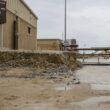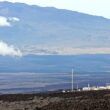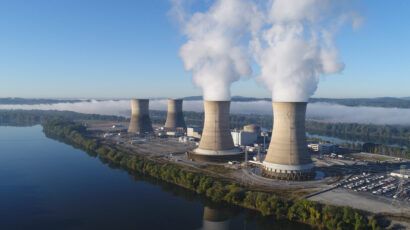Geoengineering shouldn’t distract from investing in emissions reduction
By Alan Robock, May 29, 2008
Thanks to my colleagues for their thoughtful responses. Geoengineering may indeed prove necessary, temporarily, if the benefits of geoengineering outweigh the negative consequences, and we all agree that much more research is needed to understand the costs, benefits, and potential harm of different scenarios. We also agree that if geoengineering is ever implemented, it must be geoengineering plus mitigation, and never geoengineering instead of mitigation.
Still, I’m concerned that the promise of geoengineering will delay implementation of mitigation. As I say in my essay, reversing global warming is a political problem. In their attempts to maximize profits, the fossil fuel industry has fought the science of global warming so they could continue using the atmosphere as a sewer without charge. The industry exerts tremendous influence in the White House and Congress, and uses the same techniques as the tobacco industry, which recruited scientists to argue that smoking was safe and to confuse the public, thus delaying smoking restrictions and causing countless deaths and suffering.
We are nearing the end of a similar battle with regard to global warming. The latest report from the Nobel Prize–winning Intergovernmental Panel on Climate Change (IPCC) does not present new conclusions; it merely synthesizes and strengthens science we have known for a long time. Yet, think tanks such as the Heartland Institute and the Cato Institute that are funded by fossil fuel interests continue to try to confuse the public. As they begin to embrace geoengineering in an attempt to continue business as usual (the American Enterprise Institute is holding a conference on geoengineering next week), we scientists have to be very careful not to facilitate their efforts.
True, there is little evidence yet of a concerted national or international effort to provide the needed regulations (a gradually increasing carbon tax and a prohibition of new coal plants that lack carbon-capture-and-storage technology) and the requisite research support for new energy technology (i.e., carbon sequestration, improved solar and wind power, and energy efficiency). But this doesn’t mean that the regulations and support won’t materialize soon. Europe is already leading the way in energy efficiency and regulation, and the United States will soon have a president determined to lead the world in this direction.
Ken Caldeira says that none of my arguments against employing geoengineering is nonnegotiable, but it’s the totality of them that needs to be considered. My point about ocean acidification is simply to emphasize that geoengineering won’t address all of the consequences of our rising emissions problem. He is wrong about the effects of ozone depletion from geoengineering. (See “The Sensitivity of Polar Ozone Depletion to Proposed Geoengineering Schemes.”) And just because Edward Teller suggested that we could engineer our way out of enhanced ultraviolet light, does not make it so. Teller had some other ideas that were pretty bad, to say the least.
I agree with Tom Wigley that we should use “realistic” scenarios and state-of-the-art coupled atmosphere-ocean general circulation models to study the effects of geoengineering. Our recent such study in the Journal of Geophysical Research, shows, for example, that even Arctic-only proposals for atmospheric aerosol seeding would have huge consequences for the African and Asian summer monsoons. The low-intensity geoengineering scenario Tom suggests is only one such scenario, and a new geoengineering research program should take the lead of the IPCC and agree on a set of several common experiments to evaluate.
In contrast to the impressions of Dan Whaley and Margaret Leinen, I am strongly in favor of research on geoengineering and argue for it in my recent Science article, “Whither Geoengineering?” What the international community needs more urgently, though, is research into new energy saving technologies, such as cars that get 200 miles per gallon, public transportation, domestic wind generators that work at low wind speed, and better batteries. And we need to require that all new building roofs that face the equator have built-in solar panels, that all new buildings are built to standards set by the U.S. Green Building Council, and that taxes on huge SUVs make them prohibitively expensive to operate.
A well-funded research program could lessen uncertainties associated with any temporary geoengineering project. But the promise of geoengineering should not delay actions required now to address the root causes of global warming.
Topics: Climate Change
Share: [addthis tool="addthis_inline_share_toolbox"]














